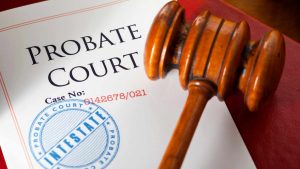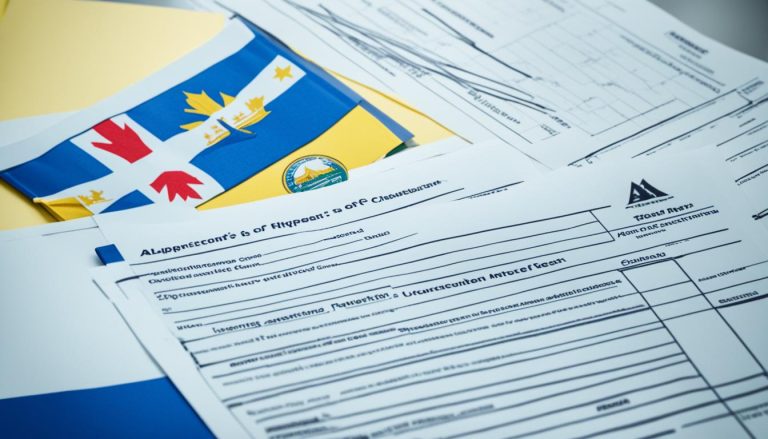Navigating the world of estate planning can be complex, especially when faced with the term “probate.” If you’ve recently lost a loved one or are preparing your own estate plan in Ontario, understanding probate is essential. So, what is probate in Ontario? This process determines how an individual’s assets will be managed and distributed after their death. It involves legal steps that ensure everything from debts to beneficiaries’ rights is handled correctly. Let’s explore this important topic further to help you grasp its significance and navigate it successfully.
What is Probate in Ontario?

Probate is the legal process that validates a deceased person’s will and oversees the distribution of their estate. It ensures that debts are settled, taxes are paid, and assets are transferred to beneficiaries according to the deceased’s wishes.
In Ontario, probate involves submitting the will to the court for approval. This step is crucial to establishing an executor’s authority to manage and distribute the estate efficiently while adhering to provincial laws.
Why is it important in Ontario?
Probate is crucial in Ontario as it provides a legal framework for settling an estate after someone passes away. It ensures that the deceased’s wishes are honored and debts are settled properly, safeguarding beneficiaries’ rights.
Additionally, probate offers protection against potential fraud or disputes among heirs. By formally validating a will through the courts, it establishes clear authority for the executor to manage and distribute assets, promoting transparency throughout the process.
Understanding Probate
Probate is a legal process for administering a deceased person’s estate. Its primary purpose is to validate the will and ensure that assets are distributed according to the deceased’s wishes.
In Ontario, understanding probate involves recognizing its role in settling debts, distributing property, and resolving disputes among beneficiaries. This process provides transparency, allowing all interested parties to understand how and when assets will be allocated.
Definition and purpose of probate
Probate is the legal process that validates a deceased person’s will and administers their estate. It ensures that all debts are settled, assets are identified, and beneficiaries receive their inheritances according to the terms of the will.
Probate provides a clear framework for managing an estate after death. This process protects the interests of creditors and heirs, fosters transparency, and reduces potential disputes among family members.
The Probate Process in Ontario

The probate process in Ontario begins with submitting an application to the court. Typically, this is done by the executor named in the will or a close relative if no will exists. Essential documents include the death certificate, the will, and a detailed list of assets.
Once submitted, Ontario’s probate court reviews these documents for authenticity. If everything checks out, they issue a Grant of Probate, confirming the executor’s authority to manage and distribute estate assets according to the deceased’s wishes.
1. Applying for Probate: Who Can Apply, and What’s Needed?
In Ontario, anyone named as the executor in a will can apply for probate. If there is no will, immediate family members can step in to seek this authority. It’s crucial to understand that being an executor comes with significant responsibilities.
To initiate the application process, you’ll need essential documents such as the deceased’s death certificate, the original will, and an estate information return outlining assets and liabilities. Proper documentation ensures a smoother probate experience.
2. Role of Ontario’s Probate Court
Ontario’s probate court plays a vital role in the estate administration process. It oversees the legal validation of wills and ensures that they meet all requirements under Ontario law. This helps prevent disputes among beneficiaries and confirms that the deceased’s wishes are honored.
The court also addresses any challenges to the will, ensuring fairness throughout the process. By providing oversight, it maintains transparency and protects both heirs and creditors involved in settling an estate.
3. Grant of Probate: What It Means and Why It’s Important?
The Grant of Probate is a legal document issued by the court confirming that a will is valid. It officially appoints an executor to manage the deceased’s estate according to the wishes outlined in the will.
This document is crucial as it provides authority for the executor to gather assets, pay debts, and distribute property to beneficiaries. Without this grant, executors may face challenges in accessing bank accounts or transferring ownership of assets.
Steps in the Probate Process

The probate process involves several essential steps. First, the executor must list and value all estate assets accurately, including real estate, bank accounts, investments, and personal belongings.
Next comes settling any outstanding debts owed by the deceased. Once debts are cleared, the executor distributes the remaining assets to beneficiaries as outlined in the will. A report is submitted to the court, and beneficiaries detailing these actions and confirming asset distributions have been completed correctly.
1. Listing and Valuing Estate Assets
Listing and valuing estate assets is a crucial step in the probate process. Executors must identify all assets owned by the deceased, including real estate, bank accounts, investments, personal belongings, and business interests.
Once identified, each asset needs to be appraised for its fair market value. This valuation helps determine the total worth of the estate and ensures that debts are settled appropriately before distributing assets to beneficiaries. Accurate valuations can prevent disputes later on.
2. Settling Debts
Settling debts is a critical step in the probate process. Before distributing assets to beneficiaries, the executor must identify and pay any outstanding debts of the deceased. This includes mortgages, credit card balances, and personal loans.
The estate’s assets are used to cover these obligations. If there aren’t enough resources, some creditors may not be paid in full or at all. Proper management of debt settlement ensures that the probate process runs smoothly for everyone involved.
3. Distributing Assets to Beneficiaries
Distributing assets to beneficiaries is a crucial step in the probate process. Once debts are settled and estate assets are properly valued, the executor can begin allocating the deceased’s possessions according to their will. This requires careful adherence to the documented wishes.
Communication with beneficiaries is key during this phase. Keeping them informed fosters transparency and helps manage expectations, reducing potential conflicts over how assets are distributed.
4. Reporting to court and beneficiaries
After settling debts and distributing assets, the executor must report to the probate court. This involves submitting detailed accounts of all estate transactions. Transparency is key, as this ensures compliance with legal requirements.
Additionally, beneficiaries should receive updates regarding their inheritance. Regular communication helps maintain trust and prevents disputes among heirs. Keeping everyone informed fosters a smoother process while honoring the deceased’s wishes effectively.
Costs of Probate

Probate can incur several costs that may affect the estate’s value. Court fees are typically required for filing, which vary based on the estate’s total value. Executors may also receive compensation, often calculated as a percentage of the estate.
Legal fees can arise from hiring professionals to navigate the probate process. These expenses should be anticipated and factored into overall estate planning to ensure smoother administration and distribution of assets.
1. Court Fees
Court fees are a significant aspect of the probate process in Ontario. These fees vary depending on the size and complexity of the estate and the specific court involved.
Typically, applicants must pay a fee when submitting their probate application. Additional charges may apply for any hearings or documents filed during the process. It’s essential to budget for these expenses to avoid unexpected financial strain while navigating probate.
2. Executor’s Fees
Executor’s fees refer to the compensation paid to individuals responsible for managing a deceased person’s estate. In Ontario, these fees are often calculated as a percentage of the total estate value.
Typically, executors can charge between 2% and 5% on the value of the assets they manage. This fee structure helps ensure that those overseeing the probate process are fairly compensated for their time and effort in handling complex tasks related to settling an estate.
3. Legal Fees
Legal fees in the probate process can vary significantly based on the complexity of the estate. Typically, lawyers charge either a flat fee or an hourly rate for their services.
These costs may include drafting necessary documents, filing them with the court, and providing legal advice throughout the proceedings. It’s essential to discuss these fees upfront to avoid surprises later on during what can already be a challenging time.
Challenges in Probate

Probate can be fraught with challenges, often leading to disputes among beneficiaries. Common conflicts might arise over the validity of a will or disagreements regarding asset distribution. These issues can create tension and prolong the process.
Delays are another frequent hurdle in probate cases. Factors such as incomplete documentation or contested wills can extend timelines significantly. Navigating these obstacles requires patience and careful management by the executor involved.
1. Common Disputes
Common disputes in probate often arise over the interpretation of a will. Beneficiaries may disagree on what certain terms mean or believe that their interests are not being fairly represented.
Another frequent issue involves the actions of the executor. Disputes can occur if beneficiaries feel the executor is mismanaging estate assets, failing to communicate effectively, or acting with bias towards certain heirs. Such conflicts can lead to legal challenges and prolonged delays in settling the estate.
2. Possible Delays
Delays in the probate process can occur for various reasons. One common cause is the complexity of the estate, which may require additional documentation or valuations. Disputes among heirs can also slow down proceedings as parties negotiate.
Another factor includes court backlogs, especially during busy periods. Executors must ensure all required paperwork is accurate and submitted promptly to minimize potential hold-ups and keep the process on track.
Alternatives to Probate

Probation can be a lengthy and costly process. Many individuals seek alternatives to simplify the transfer of assets after death. One popular option is establishing a living trust, which allows assets to pass directly to beneficiaries without going through probate.
Another alternative is joint ownership. By holding property jointly with rights of survivorship, the surviving owner automatically inherits the asset upon the other’s death, sidestepping probate entirely and ensuring a smoother transition of ownership.
1. Living Trusts
Living trusts are legal arrangements that allow individuals to manage their assets during their lifetime and determine how those assets should be distributed after death. Unlike wills, living trusts can help avoid the lengthy probate process in Ontario.
With a living trust, you appoint a trustee to oversee your assets. This arrangement offers privacy and flexibility while ensuring that your wishes are honored without court intervention when it comes time for distribution.
2. Joint Ownership
Joint ownership is a popular alternative to probate in Ontario. It allows two or more people to share ownership of an asset, such as real estate or bank accounts. When one owner passes away, the surviving owner automatically inherits the entire asset without going through probate.
This arrangement simplifies the transfer process and can save time and legal fees. However, it’s essential for co-owners to communicate effectively about their rights and responsibilities regarding shared assets.
Avoiding Probate Issues

Proper estate planning is crucial to avoid probate issues. By organizing your affairs, you can ensure that your assets are allocated according to your wishes. This proactive approach minimizes potential disputes among heirs.
Consulting a probate lawyer can provide valuable insights into the process and help navigate complexities. Legal guidance ensures compliance with Ontario laws, reducing the likelihood of challenges during probate proceedings. Investing time in these steps pays off for both you and your beneficiaries.
1. Importance of Estate Planning
Estate planning is essential for ensuring that your wishes are honored after your passing. It allows you to dictate how your assets will be distributed, minimizing conflicts among family members and reducing the likelihood of disputes during probate.
Moreover, effective estate planning can help minimize taxes and fees associated with probate. By organizing your affairs in advance, you provide clarity and support for your loved ones during a difficult time.
2. Consulting a Probate Lawyer
Navigating the probate process can be complex. Consulting a probate lawyer provides invaluable guidance tailored to your unique situation. They can clarify legal requirements, ensuring compliance with Ontario laws.
A knowledgeable attorney also helps mitigate potential disputes among beneficiaries. Their expertise streamlines the administration of the estate, making the experience less stressful for everyone involved. Having professional support can significantly ease worries during this challenging time in one’s life.
Conclusion
Understanding what probate is in Ontario is essential for anyone dealing with estate planning or settling a loved one’s affairs. The process can seem daunting, but knowing the steps involved and potential costs can provide clarity.
Proper estate planning can alleviate many challenges associated with probate, ensuring that your wishes are honored while minimizing disputes and delays. Consulting a probate lawyer adds an extra layer of support, guiding you through the complexities of the legal system.
Taking proactive measures today will safeguard your assets and ensure a smoother transition for your beneficiaries tomorrow.
FAQ
Does every will in Ontario need to be probated?
Not every will in Ontario requires probate. If the estate’s assets are below a certain value or if the assets are jointly owned, probate may not be necessary. However, probate is often needed to validate the will and settle the estate.
How much does an estate have to be worth to go to probate in Ontario?
In Ontario, there’s no specific dollar threshold for probate. However, estates with assets valued over $50,000 generally require probate. This is primarily to assess the estate administration tax applied to the total value of the estate.
How can you avoid probate in Ontario?
To avoid probate in Ontario, consider strategies like using joint ownership (with rights of survivorship), setting up a trust, designating beneficiaries on accounts (like life insurance), or gifting assets before passing away.
What assets require probate in Ontario?
Real estate, bank accounts solely in the deceased’s name, investments, and personal belongings typically require probate. Jointly owned property or assets with designated beneficiaries usually do not need probate.
How do I avoid probate on my bank account in Canada?
To avoid probate on a bank account, consider adding a joint account holder, naming a beneficiary on the account (if the bank allows), or transferring the funds into a trust before passing away, which can bypass probate requirements.
Can an estate be settled without probate in Canada?
Yes, an estate can be settled without probate in Canada if it consists of assets that do not require it, such as joint assets or those with designated beneficiaries. However, settling complex estates typically benefits from the probate process.




